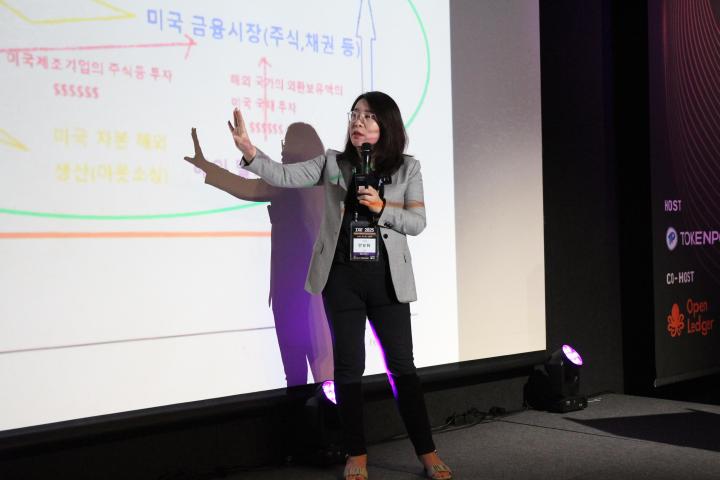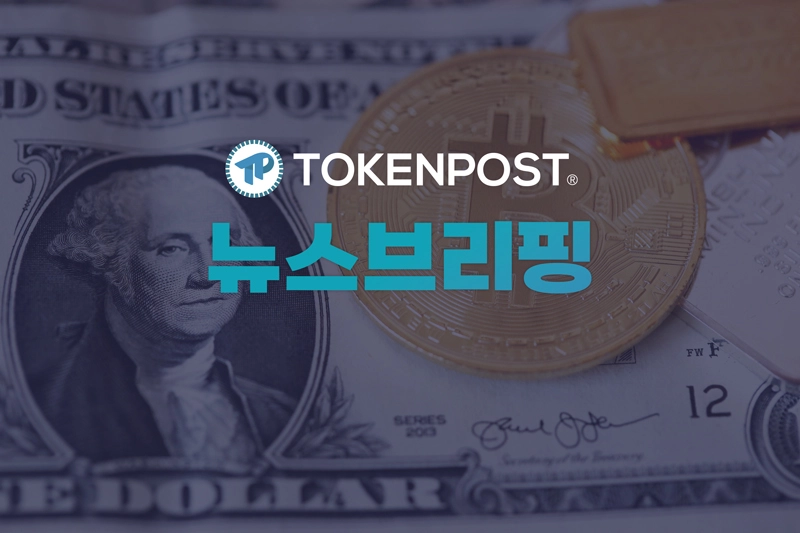
According to the financial sector on the 25th, KB Kookmin Bank filed 17 trademark rights combining the Korean won and its brand name, such as 'KBKRW' and 'KRWKB', with the Patent Office on the 23rd. Kakao Bank and Kakao Pay also applied for 12 and 18 trademark rights on the same day, respectively. The trademark application is interpreted as a strategic move beyond simple branding to secure market positioning.
Their movement is not unrelated to the rapid growth of the global stablecoin market. Currently, the global stablecoin market size has exceeded $180 billion, with USDC and USDT dominating most of the market. The 'GENIUS Act' passed by the US Senate in June provided a clear legal basis for private stablecoin issuance, signaling market expansion.
The European Union also established a comprehensive framework for stablecoin issuance and distribution through the 'MiCA (Markets in Crypto-Assets) regulation'. Singapore has implemented the 'Payment Services Act', Hong Kong has a stablecoin issuer license system, and the United Arab Emirates has digital asset regulations, making the competition fierce in the Asian region.
In Korea, 8 banks including Kookmin, Shinhan, Woori, Nonghyup, Industrial, Suhyup, Citi, and SC First Bank are forming a consortium to establish a joint venture for issuing won-based stablecoins. They are discussing joint infrastructure construction in cooperation with the Open Blockchain Association and the Financial Settlement Institute, and the establishment of the corporation is expected to be realized by the end of this year or early next year after regulatory adjustments.
The background of the banking sector's united front lies in strategies for stability and securing leadership. An official from a commercial bank explained, "It is more advantageous to build a joint infrastructure to disperse risks and increase market credibility rather than issuing stablecoins individually."
However, there are clear differences of opinion among industries regarding issuance rights. The banking sector and the Bank of Korea argue that issuance rights should be primarily granted to banks for stability reasons. This is due to concerns that if private entities issue stablecoins backed by deposits or government bonds, risks could spread across the financial market in case of a sudden surge in redemption.
In contrast, the fintech industry opposes bank monopoly. Kakao Pay filed 18 trademark rights such as 'PKRW' and 'KKRW' with the possibility of actual use in the payment domain in mind. Danal is aiming to convert to a stablecoin operator by recruiting financial institution career experts and conducting payment tests and infrastructure enhancement.
Cryptocurrency exchanges are also focusing on ecosystem development. Bithumb is pursuing a strategy to become a future distribution entity through a stablecoin nurturing contest with a maximum scale of 30 billion won, rather than direct issuance.
Discussions about issuance methods are also active. The 'trust model', which stores customer funds in a separate trust account, and the 'deposit token model' directly linked to bank deposits are considered strong candidates. The trust model has high customer fund safety but low profitability for banks. The deposit token model is easy to operate as it is linked to existing deposits but carries significant regulatory risks.
The Lee Jae-myung government's digital asset promotion policy is also supporting industry movements. The president promised the introduction of won-based stablecoins as an election campaign pledge, and recently, related bills such as Rep. Min Byung-deok's 'Digital Asset Basic Law' have been actively proposed in the National Assembly.
However, looking at overseas cases, trial and error seems inevitable during the legislative process. In the US, the GENIUS Act and STABLE Act are being coordinated in the House of Representatives, and Europe is continuously supplementing detailed guidelines during the implementation of the MiCA regulation.
In the Busan Blockchain Special Zone, digital asset verification and stablecoin-related experiments are already underway. A plan to accumulate sufficient verification data within the special zone before nationwide legislation and gradually expand is being reviewed.
The financial industry expects that the introduction of won-based stablecoins will bring effects such as reducing overseas remittance costs, expanding financial inclusiveness, and expanding the digital economic ecosystem. In particular, strengthening the status of the Korean won as a digital payment method in the Asian region is one of the main driving forces.
However, challenges remain such as the risk of stablecoin collapse if poorly designed like the Terra-Luna incident, concerns about big tech monopoly, and potential impact on monetary policy, requiring meticulous institutional design.






